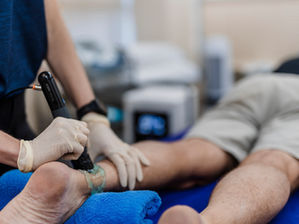Dental Phobia - Is it Real?
- Alex Huszti
- Mar 31, 2021
- 3 min read
Updated: Jul 21, 2022

Dental Phobia, like all fear, has an irrational element to it. This “mysterious” element – present with almost any fear you would like to name – is the key to unlocking and overcoming the phobia, but there also needs to be a desire to understand the fear and “let it go”.
If the desire to hang onto the fear (which is an emotional drug, and as such has an addictive element to it) is greater than the desire to release it and experience change (change always has an aspect of emotional discomfort associated with it, simply because it is new and different), then dental phobia wins.
WHAT ARE THE FACTORS ASSOCIATED WITH DENTAL PHOBIA?
One of the most common experiences that patients with dental phobia feel is similar to the feeling that they are “going to die”. This is a very common statement from dental phobics. Yet this statement – a highly charged feeling of impending doom – can easily be replicated in other ways.
One of the easiest ways to replicate this is being held underwater. A lack of ability to breathe will result in a natural response of “fight and flight” – this is a replication of “I’m going to die!”. Breathing and oxygen levels are some of your brain’s highest order monitoring. Your brain monitors your breathing and oxygen levels on a second-by-second rolling basis. As soon as your breathing starts to slow in rate – alarm bells go off everywhere. This is why difficulty with breathing and lowered oxygen levels amplify stress responses quickly and severely (a breathing rate of 6 breaths per minute, long term, is incompatible with life).
WHAT DOES THIS HAVE TO DO WITH DENTAL PHOBIA?
Dentistry presents quite a unique problem. Because the treatment we are conducting is occurring in a patient’s mouth and the treatment often involves the use of water and water sprays, the patient’s brain is often tricked into thinking that because there is ‘something in their mouth and they can’t breathe. The natural response is to hold one’s breath – which has the natural effect of massively escalating anxiety – the patient is in effect drowning in a dental surgery! It is no surprise that these patients dread visiting the dentist.
WHAT IS THE ONE THING A DENTAL PHOBIC CAN DO TO REDUCE THEIR ANXIETY?
The answer is to learn how to breathe through their nose while holding water in their mouth. Weird, isn’t it?
Dental phobics should regularly practice holding some water in their mouth – with their mouth wide open; head tilted back – while simultaneously breathing through their nose. This is precisely the situation they will encounter in a dental surgery. If any individual can hold water in their open mouth while breathing through their nose for a period of a number of minutes – breathing constantly and steadily – they will have made significant headway against their dental phobia.
I also understand that breathing through your nose may initially feel as though you can’t get enough volume of air moving through. Try nasal decongestants and be persistent – your ability to breathe through your nose can be developed and can have other significant health benefits (such as improved sleep – try searching “mouth taping” for more information!)
Sure, I’m willing to concede that what I have suggested is not the total solution by any stretch of the imagination. It does, however, provide a practical exercise to being able to breathe with relative ease in a dental treatment situation. And breathing is absolutely critical to managing anxiety and stress in any situation. Especially one involving foreign instruments in your mouth!

DR ALEX HUSZTI BelleDental
Alex has had a career focused on low-biologic cost reconstructive cosmetic dental care – common sense teeth for life.




















































